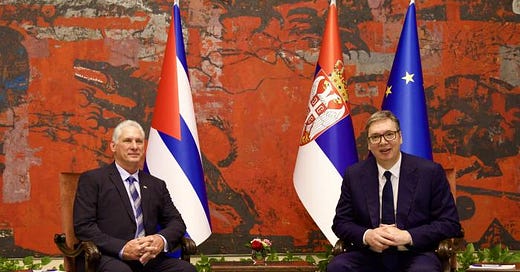In Serbia today, 83% of the population are ethnic Serbs, and 85% are Eastern Orthodox Christian. Belgrade is its capital and largest city. Its population is 6.6 million inhabitants; 8.4 million if the disputed territory of Kosovo is included.
Slavic migrations to the territory of modern-day Serbia began in the sixth century, leading to the establishment of several states. The Christianization of Serbia was a gradual process, completed by the ninth century. The Serbian Kingdom was recognized by the Holy See and Constantinople in 1217; it reached its largest territorial expansion in 1346 as the Serbian Empire.
During the fourteenth and fifteenth centuries, the Serbian Empire was conquered by the Ottoman Empire, which attained definitive conquest in 1459. A sector of the population was Islamized, but scholars disagree concerning whether conversion to Islam was voluntary or coerced. During the sevente…



